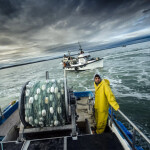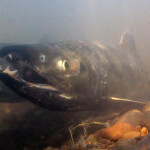The U.S. government announced Wednesday that it supports the proposed international trade ban of Atlantic bluefin tuna, to the delight of environmental group Oceana.
David Allison, senior campaign director at Oceana told SeafoodSource on Wednesday the conservation organization supports the United States’ decision.
“This is a necessary measure that has resulted from the failure of management by ICCAT (the International Commission for the Conservation of Atlantic Tunas) and has unfortunately required this prohibition on international trade in bluefin tuna,” Allison told SeafoodSource on Wednesday. “It’s the last best chance to stop the depletion of the species and begin a real effective rebuilding so that we can bring back a vibrant and robust trade in the species in the future.”
But not everyone supports the decision.
Maine Congresswoman Chellie Pingree said the ban could end up forcing some Maine fishermen out of business.
“I’m outraged by this decision,” said Pingree. “U.S. fishermen have been leaders in protecting the bluefin tuna stock and now these same fishermen are being asked to do even more. It’s completely unreasonable.”
Pingree said international quotas on the species established last year should be given more time to work.
Allison disagreed, saying the ban is the species’ last hope for a sustainable future, and if bluefin continues to be poorly managed, those people will be out of jobs, regardless.
“It’s not the appendix 1 listing that’s going to do it, it is that past failure of management,” said Allison. “I think [Congresswoman Pingree’s] concern is understandable, they’re her constituents, and she would be expected to express that concern. But the fact is that if action is not taken to impose the necessary management now the fishery for bluefin tuna will not just be limited, it will be ended.
“It is simply a necessity to make a decision for either the long-term viability of the marine life in the ocean or to say we’ll just take as much as we can take now and disregard future generations — and that’s future generations of both fish and fishermen,” Allison said.
The final decision on the ban should be made in two weeks at the CITES (Convention on International Trade in Endangered Species of Wild Fauna and Flora) meeting in Doha, Qatar, and Allison believes the ban will pass.
“The failure of management of bluefin tuna is going to hurt a lot of people for the success of some. The bluefin tuna industry and markets like Japan will have proven to drive those fishermen out of business,” said Allison. “I believe that CITES will give far more consideration for an appendix 1 listing than many people in the world ever believed.”





